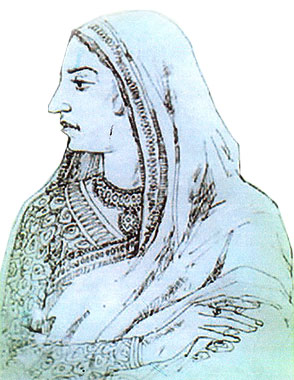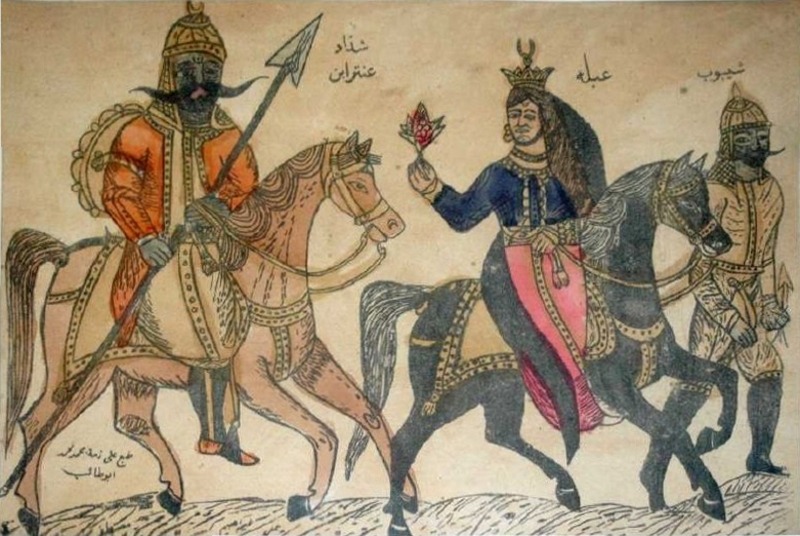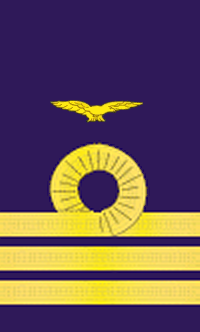|
Muqaddim
( ar, مقدم) is an Arabic title, adopted in other Islamic or Islamicate cultures, for various civil or religious officials. As per the Persian records of medieval India, muqaddams, along with khots and chowdhurys, acted as hereditary rural intermediaries between the state and the peasantry. Originating during the Delhi Sultanate, the earliest known reference to the muqaddami system dates from the first decades of the 13th century, when Hasan Nizami wrote of a delegation of muqaddams offering gifts to Sultan Qutb ud-Din Aibak. Muqaddams were tasked with revenue collection in the areas under their jurisdiction, for which they received either 2.5% as remuneration or rent-free land equalling that amount. The socio-economic status of muqaddams varied over time; during the revenue reforms of Alauddin Khalji, many were impoverished due to the abolition of their traditional privileges. However, in other periods the muqaddams "were prosperous enough to ride on costly Arabi and Iraqi hor ... [...More Info...] [...Related Items...] OR: [Wikipedia] [Google] [Baidu] |
Chowdhury
Chowdhury is a title of honour, usually hereditary, originating from the Indian subcontinent. It is an adaption from Sanskrit. During the Mughal rule, it was a title awarded to eminent people, while during British rule, the term was associated with zamindars and social leaders. The common female equivalent was Chowdhurani. Many landlords under the Permanent Settlement carried this surname. Land reforms after the partition of India abolished the permanent settlement. In modern times, the term is a common South Asian surname for both males and females. Meaning and significance "Chowdhury" is a term adapted from the Sanskrit word ''caturdhara'', literally "holder of four" (four denoting a measure of land, from ''chatur'' ("four") and ''dhara'' ("holder" or "possessor")). The name is a Sanskrit term denoting the head of a community or caste. It was a title awarded to persons of eminence, including both Muslims and Hindus, during the Mughal Empire. It was also used as a title by mil ... [...More Info...] [...Related Items...] OR: [Wikipedia] [Google] [Baidu] |
Shaikh
Sheikh (pronounced or ; ar, شيخ ' , mostly pronounced , plural ' )—also transliterated sheekh, sheyikh, shaykh, shayk, shekh, shaik and Shaikh, shak—is an honorific title in the Arabic language. It commonly designates a chief of a tribe or a royal family member in Arabian countries, in some countries it is also given to those of great knowledge in religious affairs as a surname by a prestige religious leader from a chain of Sufi scholars. It is also commonly used to refer to a Muslim religious scholar. It is also used as an honorary title by people claiming to be descended from Hasan ibn Ali and Husayn ibn Ali both patrilineal and matrilineal who are grandsons of the Islamic prophet Muhammad. The term is literally translated to " Elder" (is also translated to "Lord/Master" in a monarchical context). The word 'sheikh' is mentioned in the 23rd verse of Surah Al-Qasas in the Quran. Etymology and meaning The word in Arabic stems from a triliteral root connected with a ... [...More Info...] [...Related Items...] OR: [Wikipedia] [Google] [Baidu] |
Arab Culture
Arab culture is the culture of the Arabs, from the Atlantic Ocean in the west to the Arabian Sea in the east, and from the Mediterranean Sea in the north to the Horn of Africa and the Indian Ocean in the southeast. The various religions the Arabs have adopted throughout their history and the various empires and kingdoms that have ruled and took lead of the Arabian civilization have contributed to the ethnogenesis and formation of modern Arab culture.Language, literature, gastronomy, art, architecture, music, spirituality, philosophy and mysticism are all part of the cultural heritage of the Arabs. The Arab world is sometimes divided into separate regions depending on different cultures, dialects and traditions including: • The Levant: Lebanon, Syria, Palestine and Jordan. • Egypt • Mesopotamia (Iraq). • The Arabian Peninsula: Kuwait, Bahrain, Qatar, Saudi Arabia, Oman, Yemen and the United Arab Emirates. • Sudan • The Maghreb: Libya, Tunisia, Algeria, Morocco ... [...More Info...] [...Related Items...] OR: [Wikipedia] [Google] [Baidu] |
Lebanon
Lebanon ( , ar, لُبْنَان, translit=lubnān, ), officially the Republic of Lebanon () or the Lebanese Republic, is a country in Western Asia. It is located between Syria to the north and east and Israel to the south, while Cyprus lies to its west across the Mediterranean Sea; its location at the crossroads of the Mediterranean Basin and the Arabian hinterland has contributed to its rich history and shaped a cultural identity of religious diversity. It is part of the Levant region of the Middle East. Lebanon is home to roughly six million people and covers an area of , making it the second smallest country in continental Asia. The official language of the state is Arabic, while French is also formally recognized; the Lebanese dialect of Arabic is used alongside Modern Standard Arabic throughout the country. The earliest evidence of civilization in Lebanon dates back over 7000 years, predating recorded history. Modern-day Lebanon was home to the Phoenicians, a m ... [...More Info...] [...Related Items...] OR: [Wikipedia] [Google] [Baidu] |
Wing Commander
Wing commander (Wg Cdr in the RAF, the IAF, and the PAF, WGCDR in the RNZAF and RAAF, formerly sometimes W/C in all services) is a senior commissioned rank in the British Royal Air Force and air forces of many countries which have historical British influence, including many Commonwealth countries but not including Canada (since Unification) and South Africa. It is sometimes used as the English translation of an equivalent rank in countries which have a non-English air force-specific rank structure. It ranks immediately above squadron leader and immediately below group captain. It has a NATO ranking code of OF-4. It is equivalent to commander in the Royal and United States Navies, as well as to lieutenant colonel in the British Army, the Royal Marines, and the United States Army, Air Force and Marine Corps. The equivalent rank in the Women's Auxiliary Air Force and the Women's Royal Air Force (until 1968) and in Princess Mary's Royal Air Force Nursing Service (until 1980) ... [...More Info...] [...Related Items...] OR: [Wikipedia] [Google] [Baidu] |
Commander
Commander (commonly abbreviated as Cmdr.) is a common naval officer rank. Commander is also used as a rank or title in other formal organizations, including several police forces. In several countries this naval rank is termed frigate captain. Commander is also a generic term for an officer commanding any armed forces unit, for example "platoon commander", "brigade commander" and "squadron commander". In the police, terms such as "borough commander" and "incident commander" are used. Commander as a naval and air force rank Commander is a rank used in navies but is very rarely used as a rank in armies. The title, originally "master and commander", originated in the 18th century to describe naval officers who commanded ships of war too large to be commanded by a lieutenant but too small to warrant the assignment of a post-captain and (before about 1770) a sailing master; the commanding officer served as his own master. In practice, these were usually unrated sloops-of-war of no ... [...More Info...] [...Related Items...] OR: [Wikipedia] [Google] [Baidu] |
Lieutenant Colonel
Lieutenant colonel ( , ) is a rank of commissioned officers in the armies, most marine forces and some air forces of the world, above a major and below a colonel. Several police forces in the United States use the rank of lieutenant colonel. The rank of lieutenant colonel is often shortened to simply "colonel" in conversation and in unofficial correspondence. Sometimes, the term 'half-colonel' is used in casual conversation in the British Army. In the United States Air Force, the term 'light bird' or 'light bird colonel' (as opposed to a 'full bird colonel') is an acceptable casual reference to the rank but is never used directly towards the rank holder. A lieutenant colonel is typically in charge of a battalion or regiment in the army. The following articles deal with the rank of lieutenant colonel: * Lieutenant-colonel (Canada) * Lieutenant colonel (Eastern Europe) * Lieutenant colonel (Turkey) * Lieutenant colonel (Sri Lanka) * Lieutenant colonel (United Kingdom) * L ... [...More Info...] [...Related Items...] OR: [Wikipedia] [Google] [Baidu] |
Arab World
The Arab world ( ar, اَلْعَالَمُ الْعَرَبِيُّ '), formally the Arab homeland ( '), also known as the Arab nation ( '), the Arabsphere, or the Arab states, refers to a vast group of countries, mainly located in Western Asia and Northern Africa, that linguistically or culturally share an Arab identity. A majority of people in these countries are either ethnically Arab or are Arabized, speaking the Arabic language, which is used as the '' lingua franca'' throughout the Arab world. The Arab world is at its minimum defined as the 18 states where Arabic is natively spoken. At its maximum it consists of the 22 members of the Arab League, an international organization, which on top of the 18 states also includes the Comoros, Djibouti, Somalia and the partially recognized state of Palestine. The region stretches from the Atlantic Ocean in the west to the Arabian Sea in the east, and from the Mediterranean Sea in the north to the Indian Ocean in the sout ... [...More Info...] [...Related Items...] OR: [Wikipedia] [Google] [Baidu] |
Murshid
''Murshid'' ( ar, مرشد) is Arabic for "guide" or "teacher", derived from the root ''r-sh-d'', with the basic meaning of having integrity, being sensible, mature. Particularly in Sufism it refers to a spiritual guide. The term is frequently used in Sufi orders such as the Naqshbandiyya, Qādiriyya, Chishtiya, Shadhiliya and Suhrawardiyya. The path of Sufism starts when a student (Murid) takes an oath of allegiance or ''Bay'ah'' (''bai'ath'') with a spiritual guide (''murshid''). In speaking of this initiatory pact of allegiance, the Qur’ān (48:10) says: ''Verily they who pledge unto thee their allegiance pledge it unto none but God. The Hand of God is above their hands''.Cf. Martin Lings, ''What is Sufism'', Islamic Texts Society, Cambridge, p. 125. The murshid's role is to spiritually guide and verbally instruct the disciple on the Sufi path, but "only one who has himself reached the End of the path is a spiritual guide in the full sense of the Arabic term ''murshid''". A ... [...More Info...] [...Related Items...] OR: [Wikipedia] [Google] [Baidu] |
Pir (Sufism)
Peer or Pir ( fa, پیر, lit=elder) is a title for a Sufi spiritual guide. They are also referred to as a ''Hazrat'' (from ar, حضرة, Haḍra) and ''Sheikh (Sufism), Sheikh'' or Shaykh, which is literally the Arabic equivalent. The title is often translated into English as "saint." In Sufism a Pir's role is to guide and instruct his disciples on the Sufi path. This is often done by general lessons (called ''Suhbas'') and individual guidance. Other words that refer to a Pir include ''Murshid'' ( ar, مرشد, lit=guide, mentor) and ''Sarkar'' ( fa, سرکار, lit=master, lord). The title ''Peer Baba'' (from fa, بابا, lit=father) is common in the Indian subcontinent used as a salutation to Sufi masters or similarly honored persons. After their death, people visit their tombs or mausolea, referred to as dargah or maqbara. The path of Sufism starts when a student takes an oath of allegiance with a teacher called ''Bai'at'' or ''Bay'ah'' (Arabic word meaning "transactio ... [...More Info...] [...Related Items...] OR: [Wikipedia] [Google] [Baidu] |
Dervish
Dervish, Darvesh, or Darwīsh (from fa, درویش, ''Darvīsh'') in Islam can refer broadly to members of a Sufi fraternity A fraternity (from Latin language, Latin ''wiktionary:frater, frater'': "brother (Christian), brother"; whence, "wiktionary:brotherhood, brotherhood") or fraternal organization is an organization, society, club (organization), club or fraternal ... (''tariqah''), or more narrowly to a religious mendicant, who chose or accepted material poverty. The latter usage is found particularly in Persian and Turkish language, Turkish (''derviş'') as well as in Berber languages, Amazigh (''Aderwish''), corresponding to the Arabic term ''Fakir, faqīr''. Their focus is on the universal values of love and service, deserting the illusions of ego (''nafs'') to reach God in Islam, God. In most Sufi orders, a dervish is known to practice ''dhikr'' through physical exertions or religious practices to attain the ecstatic trance to reach God. Their most popular practic ... [...More Info...] [...Related Items...] OR: [Wikipedia] [Google] [Baidu] |
Delhi Sultanate
The Delhi Sultanate was an Islamic empire based in Delhi that stretched over large parts of the Indian subcontinent for 320 years (1206–1526).Delhi Sultanate Encyclopædia Britannica Following the invasion of by the , five dynasties ruled over the Delhi Sultanate sequentially: the Mamluk dynasty (1206–1290), the Khalji dynasty (1290–1320), the |






_001.jpg)